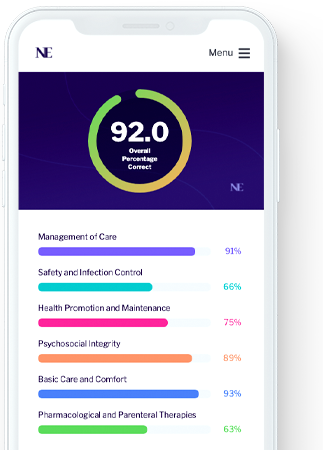Faith-Based Nursing
What is Faith-Based Nursing?
Faith-based or parish nursing is a subspecialty of nursing that focuses on supporting physical and mental wellness, preventing and minimizing illness, and caring for patients’ spirits within a faith community. Faith-based nurses achieve this by placing importance on nurturing the personal relationship between the patient and the nurse.
In 2005, what was then called “parish nursing” was officially recognized as faith community nursing by the American Nurses Association (ANA) to include the entire spectrum of faiths being practiced across the nation. Although the official designation of the specialty is relatively recent, faith-based nursing as a practice has existed for much longer. Hundreds of healthcare institutions, clinics, and hospitals are founded on spiritual or religious principles, as are many prestigious, well-regarded universities and colleges. As nurses enroll in and graduate from the programs offered by these educational institutions, they often find employment in healthcare organizations founded on those same principles.
Faith-Based Nursing Programs
Aspiring nurses who are considering enrollment in a faith-based program should examine the doctrines held by the school to ensure a good fit with their personal beliefs and values. Faith-based programs often require that students attend worship services or take courses on religious subjects as a mandatory part of the curriculum. Potential students should always be mindful of a program’s accreditation and NCLEX pass rate as well.
Benefits of a Faith-Based Nursing Program
If you’ve determined that your values and religious beliefs align with those of the nursing school, you’ve already completed an important step to achieving success in the program. Other benefits of a faith-based school may include:
- A faith-based nursing school curriculum encourages students to integrate their religious beliefs into their clinical practice and beyond.
- The practice is based on a holistic approach–caring for the whole patient.
- Students focus on developing and nurturing a deeper relationship with the patient using a combination of clinical best practice and spiritual guidance and care.
- Faith-based programs are often smaller with a lower student-instructor ratio.
- Students are immersed in an environment with like-minded individuals striving for the same achievements and success.
- Faith-based programs aim to be inclusive. Students are not excluded just because they practice a different religious affiliation. Diversity and equality are important cornerstones of a high-quality faith-based curriculum. This extends to respecting the religious autonomy of patients and other classmates as well.
Do I Need to Practice the Same Religion to Enroll in a Faith-Based School?
No, you aren’t required to share the same religious affiliation or beliefs to enroll and be successful in a faith-based nursing program. Keep in mind, however, that many of these institutions will require applicants to sign contracts, like a “statement of faith”, to ensure that the values of both the program and the student remain aligned, harmonious, and conducive to what the institution has determined to be the most fruitful educational experience. Upon graduation, nurses may pursue employment at a faith-based or secular institution of their choosing. However, some programs offer scholarships for nurses who contract to work for their affiliated institutions upon graduation.
Potential Career in Nursing: Faith Community Nurse
A faith community nurse is one option for graduates of faith-based nursing programs. This job integrates clinical nursing practice and community health ministry and can be subdivided into other roles developed by both the ANA and the Health Ministries Association (HMA) to serve that particular community. These possible roles may include:
- Health Educator – promotes healthy activities and information for members of the community
- Integrator of Faith and Health – combines expertise in physical health and spiritual wellness to provide support to individuals
- Personal Health Counselor – advises members and families on healthy ways to cope with life transitions and stressful events
- Support Group Developer – determines specific needs in the community and facilitates the creation of support groups
- Volunteer Facilitator – supervises and coordinates volunteer activity within the community
- Referral Advisor – acts as a liaison between members of the community and various support organizations and other internal or external resources
- Advocate – works toward integration of health initiatives for the community population
A faith community nurse will include spirituality and religion as fundamental contexts of nursing practice, while a nurse from a traditional educational program will not. However, both types of nursing practice will focus on at least the core basics of healthcare, such as general screening, disease prevention, promotion of healthy lifestyle activities, and overall patient well-being.
Faith-based nurses will frequently interact with members of their parish, congregation, or community. By fostering mutual relationships, the nurse will collect a comprehensive knowledge of the particular needs of the community and how to best provide assistance for their health or spiritual issues.
Potential Career in Nursing: Missionary Nurses
Missionary nurses make a powerful impact by working around the globe, providing much-needed healthcare for patients in underdeveloped parts of the world. More often than not, these communities are underserved, remote, impoverished, and lack adequate access to even basic medical resources or supplies. They may also be under threat of war or conflict from neighboring aggressors, so missionary nurses serving on a medical team have the opportunity to significantly improve and even save lives.
Although a degree from a faith-based nursing program can certainly be useful in certain aspects in the field, it is not a requirement for becoming a missionary nurse. RNs who graduate from secular programs may also participate in missionary efforts. Churches and other religious organizations regularly organize and coordinate medical missions under the guidelines set by the World Health Organization (WHO). These missions are composed of physicians, nurses, and other healthcare professionals who travel to a region in desperate need of medical assistance. Often, these regions also lack necessities like clean water, electricity, and schools.
Medical teams then provide services, which include routine checkups, eye surgeries, administering vaccines, delivering newborns, and setting broken bones in clinics with local providers. Other tasks, like promoting and teaching healthy habits and hygiene to the community, are common. Missionary nurses even help construct housing and dig wells for water and irrigation and may also travel to remote villages and communities to teach the Bible and provide counseling with spiritual guidance. Many nurses return home and continue their humanitarian work by raising awareness and holding fundraisers for supplies and necessities for the community.
For more potential careers in nursing, visit Types of Nursing Degrees and Careers here. Whether your nursing practice is religious or secular-based, you can find options in nursing that are personally and professionally fulfilling at a variety of educational levels.




